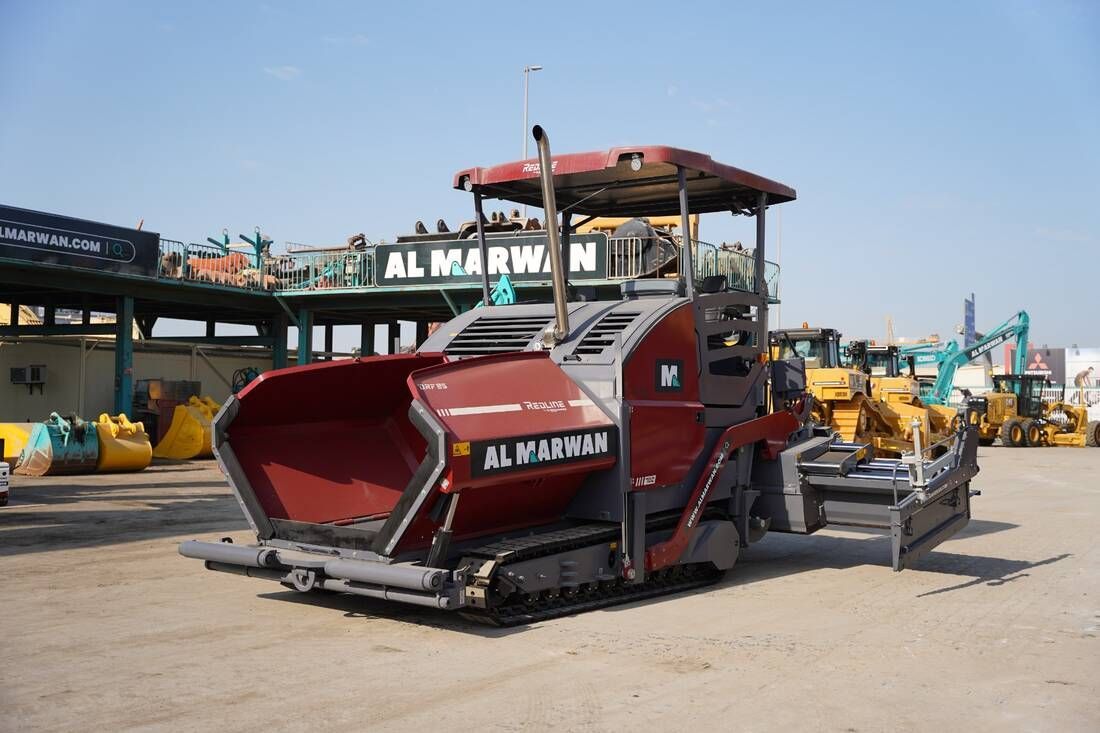Beijing Capital International Airport: A Global Aviation Hub
Posted on September 13th, 2024
Explore the world's busiest airport, its impressive terminals, and the machinery behind state-of-the-art runways.
Beijing Capital International Airport is one of the world's busiest and most crucial airports, serving as the main international gateway to China’s capital. Located approximately 32 kilometers northeast of downtown Beijing, it stands as a vital hub for international and domestic flights alike. Opened in 1958, the airport has undergone several significant expansions and upgrades to accommodate the increasing volume of passengers and flights.
Terminal and Runway Developments
Beijing Capital International Airport boasts three terminals, each catering to different aspects of the airport's extensive operations. Terminal 1, the oldest, was initially used for domestic flights but has been largely replaced by Terminal 2 and Terminal 3. Terminal 2, which opened in 1999, serves international flights and is known for its unique and functional design. The crowning jewel of the airport is Terminal 3, which opened in 2008 in time for the Beijing Olympics. Terminal 3 is one of the largest airport terminals in the world, covering approximately 986,000 square meters. It was designed by the renowned architect Norman Foster and his team, showcasing a modern design with an emphasis on efficiency and passenger comfort.
The airport's runway system is equally impressive. Beijing Capital International Airport features three runways, each crucial for handling the massive traffic that flows through the airport daily. The runways are designed to accommodate large aircraft, including the Airbus A380, which is the world’s largest passenger airplane. The construction and maintenance of these runways involve advanced machinery and technology to ensure safety and efficiency.
Machinery Used for Runway Construction
The construction and maintenance of runways at Beijing Capital International Airport involve a range of sophisticated machinery. For runway construction, one of the key pieces of equipment is the asphalt paver. This machine lays down a smooth layer of asphalt, ensuring a strong and durable surface for aircraft operations. Road rollers are then used to compact the asphalt, creating a stable foundation capable of supporting the weight of large aircraft.
Another essential machine in runway construction is the grader, which levels the ground and ensures proper drainage. Proper drainage is crucial to prevent water accumulation on the runway, which can lead to dangerous conditions for aircraft. Additionally, excavators and bulldozers are employed to clear the site and prepare it for construction, while cranes are used to lift and position heavy materials.
The maintenance of runways requires a different set of equipment. Runway sweepers are used to keep the runway surface clean from debris, which is vital for preventing damage to aircraft and ensuring safety. Crack sealers are employed to fill any cracks that might appear in the asphalt, preventing them from expanding and causing more significant issues. Regular inspections are carried out using specialized inspection vehicles that can detect and report on the condition of the runway surface.
Facilities and Services
Beijing Capital International Airport is equipped with a range of facilities and services designed to enhance the travel experience. Passengers can find a variety of dining options, from fast food to fine dining, as well as numerous shops offering everything from souvenirs to high-end fashion. The airport also provides extensive business services, including lounges, conference rooms, and high-speed internet access.
For international travelers, the airport offers a range of services including currency exchange, baggage handling, and customs assistance. The airport's efficient and well-organized layout helps to streamline the check-in, security, and boarding processes, making the travel experience as smooth as possible.
Expansion and Future Plans
As part of its ongoing efforts to accommodate the increasing demand for air travel, Beijing Capital International Airport continues to invest in expansion and modernization projects. Recent plans include the construction of a fourth terminal and additional runways to further enhance capacity and efficiency. These projects are expected to significantly increase the airport’s ability to handle both domestic and international flights, reinforcing its position as a major global aviation hub.
Beijing Capital International Airport stands as a testament to modern engineering and design in the aviation industry. Its extensive facilities, cutting-edge machinery for runway construction and maintenance, and continuous expansion efforts ensure that it remains one of the busiest and most important airports in the world. Whether you are arriving in or departing from Beijing, the airport provides a world-class experience that reflects the city’s status as a global powerhouse.

